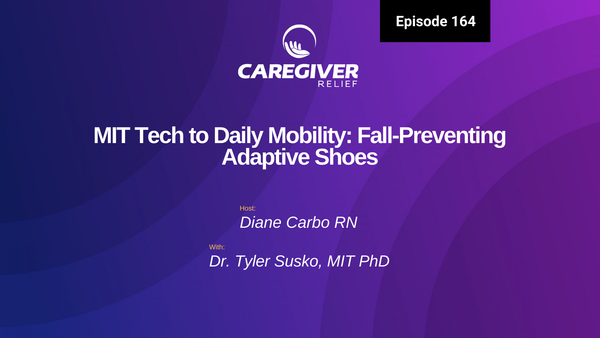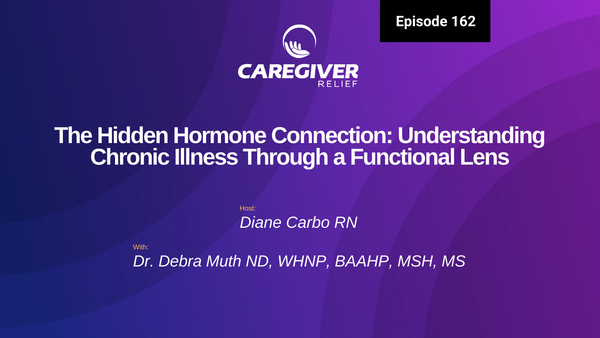What Does Grief Mean?

Grief is an emotion that is felt in response to a painful loss or life transition. It is a natural, human experience that can affect a person’s physical, mental, and emotional wellbeing. Grief can follow the death of a loved one, the end of a relationship, the loss of a job, or any other major life event. While grief is a normal reaction to loss, it can also be intensely overwhelming and difficult to cope with.
It is important to discuss grief because it affects almost everyone at some point in their lives. In fact, more than 70 percent of people will experience a significant loss in their lifetime. Grief can cause significant distress and lead to a period of adjustment for the individual going through the process. It can also have an impact on families and friends. Grief carries with it a range of emotions, physical symptoms, and challenges that can take time to work through.
Fortunately, there are many strategies and resources available to help people cope with grief and find support during this difficult time. This guide will provide an overview of grief, what it means, and how best to cope with the experience.
What is Grief?
Grief is a normal response to the loss of something or someone we love, and it can take many forms. Grief is an emotional reaction that can be experienced by all, regardless of age, gender, race, religion, or cultural background. It is a complex mix of thoughts, emotions, and physical sensations that vary depending on the individual and the situation — there is no one-size-fits-all approach to grieving.
In its simplest form, grief is the feeling of deep sadness caused by this loss. It can last anywhere from days to weeks, months, or even years, and it’s important to remember that there is no timeline for grief. Everyone processes grief in their own unique way, and some find comfort in knowing that what they are feeling is natural and valid.
Causes of Grief
Grief is a normal and natural emotion to feel in response to life’s losses. Grief can be triggered by many factors, such as death, divorce, illness, or other major life changes. Death is one of the most common causes of grief, as we experience losses from loved ones, pets, or close friends. Other causes of grief may include loss of a job, a move away from home, infertility, or any other life change that feels like a loss.
Whatever the cause of grief, it can have a profound impact on individuals and families. It is important to identify and understand the sources of grief in order to effectively cope with its effects.
Physical Symptoms of Grief
Grief is both an emotional and a physical response. When you are grieving, it is not uncommon to experience physical sensations in addition to emotional pain. Some of the most common physical symptoms of grief include:
- Sadness
- Fatigue
- Lack of appetite
- Headaches or other physical pains
- Startle reflexes
- Changes in sleeping patterns
These physical symptoms can be difficult to cope with, but understanding them can help you to better manage your grief. It is important to remember that everyone experiences grief differently and these symptoms may vary from person to person.
Emotional Symptoms of Grief
Grief is an emotional response to a significant change or loss in an individual's life. It often manifests itself in intense feelings, such as shock, anger, guilt, and loneliness. These feelings are normal responses to grief and the intensity of each can vary depending on the individual and the situation.
Shock is a common emotion experienced during grief. People may feel numb, confused, or overwhelmed, as if they were in a daze. They may be unable to process what happened or understand how they should feel.
Anger is another common emotion associated with grief. People may be angry at the person who caused the pain, the situation, or even God. This feeling is completely normal and it's important to recognize that people need to work through this emotion in order to come to terms with their grief.
Guilt is also a common emotion that can accompany grief. People may feel guilty for things they did or didn't do, or for things that happened before the loss occurred. It's essential to remind yourself that there is nothing you can do to change the past and that it's important to focus on the present instead.
Loneliness is often a solitary feeling that accompanies grief. People may feel disconnected from family and friends due to the pain they are experiencing. It's important for people to reach out to their support system and seek help in dealing with this emotion.
Coping Strategies
Grief is a natural response to loss and can manifest in different ways. It is important to recognize that everyone grieves differently, and it is important to learn how to cope with grief in a healthy manner. There are many different strategies that can be implemented to help cope with the difficult emotions associated with grief.
- Seek Professional Help: Talking to a counselor or therapist can provide support and guidance during the grieving process. A professional can help identify and manage emotions, find meaning and healing, and coordinate any necessary services.
- Connect with Others: Sharing grief with others who have experienced a similar loss may provide comfort and empathy. Joining a grief support group or attending a memorial service can also be helpful in understanding and processing feelings.
- Express Yourself Creatively: Engaging in creative activities such as writing, drawing, painting, music, or film can be a source of comfort and can aid in expressing thoughts and emotions related to grief.
- Exercise: Exercise can help provide physical and psychological relief. Going for a walk, doing yoga, or playing a sport can help manage stress and provide a distraction from difficult thoughts and feelings.
- Take Care of Yourself: Nourishment, rest, and relaxation are essential for coping with grief. Eating nutritious foods, getting enough sleep, and practicing mindfulness are important for both physical and mental health.
It can be overwhelming to make decisions when grieving, so take things one day at a time and practice self-compassion. By implementing these strategies, you can learn to cope with your grief in a healthy and productive way.
Types of Grief
Grief manifests in many forms. Knowing the different types of grief can help people assess their feelings and find the best way to cope with them. Here are four common types of grief:
- Anticipatory Grief: Anticipatory grief is the grief that occurs when a person anticipates the loss of someone they love. It is often experienced before a loved one dies, as the realization sets in.
- Complicated Grief: Complicated grief occurs when the sadness and loss of a loved one don’t dissipate over time but instead become more intense. This type of grief can be debilitating and may lead to depression or other mental health issues.
- Delayed Grief: Delayed grief happens when a person experiences the symptoms of grief weeks or months after the loss of a loved one. This type of grief can occur due to a person’s inability to accept the reality of death or because they are preoccupied with other issues at the time.
- Disenfranchised Grief: Disenfranchised grief is the grief experienced when someone does not receive recognition or understanding for their feelings. This type of grief commonly occurs when a person loses a pet or a loved one in an unconventional or taboo way, such as through divorce or suicide.
No matter the type of grief, recognizing its presence and learning how to cope with it is important. Identifying which type of grief you are experiencing can help you or your loved one begin to work through the pain.
Recognizing Secondary Effects of Grief
Grief can affect us in a variety of ways, and this includes physical symptoms and the ability to make decisions. It's important to acknowledge these experiences so that we can support ourselves and others who are going through a difficult time.
Physical symptoms of grief can include fatigue, headaches, chest pain, and difficulty sleeping. These symptoms often mimic the signs of physical illness, so it's important to recognize the difference between the two.
Difficulty making decisions is another common symptom of grief, which can make it hard to manage everyday tasks. We may feel overwhelmed by decisions, have difficulty understanding complex information, or even struggle to make simple decisions.
It's also important to remember that everyone responds to grief differently, and there is no one-size-fits-all approach to managing the physical and mental effects of grief. If you or someone you care about is struggling with grief-related symptoms, don't hesitate to reach out to a trusted friend, family member, or professional for support.
Challenges Faced by Different Groups
Grief can manifest differently depending on the individual’s gender, age, and cultural values. It is important to recognize that everyone has their own unique experience with grief and the challenges they face may differ from person to person.
For example, men and women often express and process grief in different ways. Men may be more likely to suppress their feelings of sadness and grief, while women may be more inclined to talk about their emotions and show vulnerability. Self-expression and communication styles can also be affected by age. Older adults may prefer to express their grief through silent reflection, while younger generations may search for support from peers or siblings.
Cultural values may also shape how individuals cope with grief. In some cultures, people are expected to remain stoic and composed, while others may acknowledge grief openly in order to reach acceptance. It’s important to keep an open mind and be respectful of different customs when supporting someone in mourning.
Supporting Others Experiencing Grief
Grieving is a deeply personal process and one that can feel complicated, lonely, and overwhelming. As an outsider, it can be difficult to know exactly how to support someone who is grieving. This is why it is important to understand how best to help without over-stepping boundaries.
When it comes to helping someone who is grieving, the most important thing is to simply be present. Listen to them, let them talk, and offer a shoulder or a hug if they need it. Be sure to ask questions about their journey with grief and validate their feelings. It is important to understand that everyone experiences grief differently, so allow your friend to speak openly and honestly about what they are going through.
While you may want to offer solutions or advice, it’s important to remember that something like grief cannot be “fixed”. Instead, focus on offering emotional support and being there for your friend when they need it. Avoid making assumptions, such as telling them what they should do, or talking about your own experiences with grief.
It is also important to understand and respect the grieving person’s boundaries. Allow them to take the lead in deciding when and how much they want to talk about their grief. If your friend starts to become overwhelmed by the conversation, give them an out. For example, you can suggest taking a break or changing the topic.
Long-Term Outcomes of Grief
The long-term effects of grief can be difficult to predict. For some, the grieving process can lead to post-traumatic growth, a phenomenon where individuals come out of a traumatic event with new strengths or capacities. People who experience post-traumatic growth tend to feel a deep appreciation for life and develop a new sense of purpose and meaning. It is also possible for grief to lead to post-traumatic stress disorder (PTSD). PTSD is a condition characterized by persistent anxiety, depression, flashbacks, intrusive thoughts, nightmares, and avoidance behaviors. It is important to speak to a professional if you are experiencing any of these symptoms.
Another potential long-term outcome of grief is a change in lifestyle. Grief can cause individuals to completely alter their routines, which can result in changes to their relationships, career, and other areas of life. A long-term shift in mood can be another effect of grief, and it is important to recognize when a low mood is interfering with daily activities.
Finally, grief can also lead to spiritual growth or changes in beliefs. Many people find that going through a traumatic event makes them reconsider their values and beliefs and ultimately leads them to become more spiritually in touch with themselves and the world around them.
Conclusion
Grief is a normal response to the loss of something or someone we love. It can take different forms and can be experienced differently depending on our age, gender, cultural background, and more. While grief cannot be avoided, it is possible to manage and cope with its effects if we have the right help and support.
If you are looking for support during this difficult time, below are some resources that may be useful:
- Counseling services
- Grief support groups
- Online communities
- Books or podcasts about grief
- Helplines for emotional support
Grief can be an incredibly isolating experience, but it helps to remember that you are not alone. Seeking help from a professional or support group can make a big difference in how you cope with your loss.





